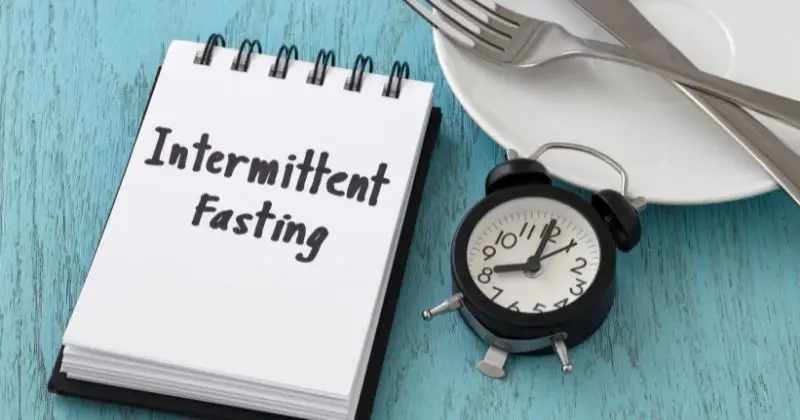Do you want to improve metabolic health, lose weight, and simplify your lifestyle? Intermittent fasting (IF) might help you as it is one of the world’s most popular health and fitness trends. It can powerfully affect your body and brain and may even help you live longer. Here I have mentioned some essential points about Intermittent Fasting for Beginners.

Intermittent Fasting (IF)
Intermittent fasting (IF) is a diet routine that doesn’t specify which foods you should eat but rather when you should eat. In this respect, it’s not a diet plan but more accurately described as an eating pattern. This fasting is very popular in the health and fitness community.
People have been fasting for centuries, and humans evolved to function without food for extended periods. In fact, fasting is more natural than always eating 3 to 4 meals per day. In this fasting, you eat within a specific time and fast the rest of the time. It might effectively manage your body weight.
This exercise not only helps you to lose weight, but it has tons of other health benefits. It gives you more energy, brainpower, and cellular protection. All you have to do is change your eating window and fasting schedule. You can fast for 16-hour daily or 24 hours twice per week.
Popular Intermittent Fasting
A person can do intermittent fasting in several ways. Every method can be effective, but which one works best depends on the individual. Before starting it, you should ask a healthcare professional. Here are five popular Intermittent Fating for beginners.
The 5:2 diet
This diet is effective at helping with weight loss. In this diet, you are supposed to eat what you typically eat five days of the week and restrict your calorie intake to 500 to 600 for two days of the week. This is also called the Fast Diet. A woman can intake 500 calories, and men can intake 600 calories on fasting days.
For instance, you might eat each day of the week except Friday and Tuesday. You can eat two small meals. If you are a woman, you can take 250~ calories. If you are a man, 300 calories for those two days are suitable for you.
Eat-Stop-Eat
Eat-Stop-Eat fasting means to fast 24-hour once or twice per week. Suppose you finish dinner at 8:00 pm. Friday and don’t eat until dinner at 8:00 pm Saturday, it means you’ve completed a full 24-hour fast. The fast from breakfast to breakfast or lunch to lunch will show the same result.
You can drink water, coffee, and other zero-calorie drinks but not eat any solid food. If you’re fasting to lose weight, it must be your regular diet during the eating periods. In simple words, you should eat the same amount of food by making it your routine diet.
The side effect of this fasting is that a full 24-hour fast may be pretty tricky for many people. However, there is no need to go all-in right away. It’s OK to start with 14 to 16 hours and gradually increase the hours.

The 16/8 method
The 16/8 method involves fasting for about 16 hours and restricting your daily eating for 8 hours. You can eat two or more meals within the restricting window. It’s essential to eat healthy foods during your eating window primarily. It won’t work if you eat lots of processed foods or an excessive number of calories.
This fasting method can be as simple as not eating anything after dinner and skipping breakfast. When you finish your meal at 9:00 pm and eat nothing until the next day at noon, you’re technically fasting for 16 hours.
People who get hungry in the morning may feel complications getting used to it. Many people who skip their breakfast eat this way. You can drink water, coffee, and other zero-calorie drinks during the fast to reduce feelings of hunger.
Spontaneous intermittent fasting
Spontaneous intermittent fasting is skipping one or two meals throughout the day. You are not restricted to follow a structured intermittent fasting plan to get its benefits. Meanwhile, you can also skip meals from time to time, like when you are not hungry or too busy to cook and eat.
Some people used to handle long periods of famine, and they can miss their meals from time to time. So, if you don’t feel hungry today, skip breakfast and eat a healthy lunch dinner. You can also do a short fast while traveling when you can’t find anything you want to eat. Make sure to eat healthy and balanced food during the non-fasting period.
The Warrior Diet
The Warrior diet is a type of diet where you eat small amounts of fruits and vegetables during the day and eat one meal at night. You keep fasting the entire day and feast at night within 4 hours eating window.
This Diet is the most popular diet, including intermittent fasting. Its food choices are pretty similar to the paleo diet. It mainly contains whole and unprocessed foods. It might be the easiest fasting to do.
Here is a must watch video before you embark upon your Intermittent fasting journey:
Benefits of Intermittent fasting for beginners
Intermittent fasting can have powerful benefits. When you stay hungry throughout the day, several things happen in your body on the cellular and molecular level. Our bodies maintain hormone levels to access stored body fat. When you fast, your cells start critical repair processes and change the expression of genes in our bodies.
This causes changes in hormone levels, cell function, and gene expression, which are beneficial for health. Here I have mentioned some Benefits of Intermittent fasting for beginners;
- Gene expression
Intermittent fasting changes the function of genes related to longevity and protection against disease. You might live a healthy and long life with this fasting.
- Cellular repair
When we fast, our cells initiate cellular repair processes. The cells start digesting and removing old and dysfunctional proteins that build up inside cells. Intermittent fasting is very popular, as it improves your health while simplifying your life at the same time.
- Weight loss
Intermittent fasting can help you lose weight without consciously restricting calories. The levels of growth hormone start increasing as much as 5-fold. This helps to lose fat and gain muscles.
- Insulin resistance
It helps our body to reduce insulin resistance. Intermittent fasting can lower blood sugar by 3 to 6% and reduce fasting insulin by 20% to 31%. It also gives you protection against type 2 diabetes. When we fast, the insulin level drops automatically, and it helps to lower insulin levels and make stored body fat more accessible.
- Inflammation
Some studies show that this fasting causes reductions in inflammation markers, a crucial driver of many chronic diseases.
- Heart health
This fasting may reduce “bad” low-density lipoprotein (LDL) cholesterol, blood sugar, blood triglycerides, insulin resistance, and inflammatory markers. It helps decrease all risk factors for heart disease. Keep monitoring your heart rate.
- Brain health
Intermittent fasting increases the brain hormone BDNF (Brain-Derived Neurotrophic Factor) and may aid the growth of new nerve cells. It may also protect against Alzheimer’s disease.
- Makes Your Healthy Lifestyle Simpler
One can start eating healthy food and avoid unhealthy food at once, but it might be tough to maintain the same healthy diet. It could also make your routine easier as now you don’t have to prepare, cook or clean so much.
Here is a motivating video channel to get you past the rough spots:
Prescriptions
Intermittent fasting is a weight-loss tool that doesn’t work for everyone. It’s not for those who have eating disorders or underlying health conditions. If you are willing to try it, consider that diet quality is crucial. Don’t go for ultra-processed foods during the eating periods, and try to manage your weight to boost your health.
FAQs
Who Should Be Careful or Avoid It?
Indeed, this fasting is not for everyone. If someone is underweight, has a diabetes problem with blood sugar regulation, low blood pressure, is taking medications, has a medical condition, or has a history of eating disorders, should not fast without consulting a health professional.
Which woman shouldn’t try Intermittent Fasting?
A woman who is breastfeeding, pregnant, having a history of amenorrhea, or trying to conceive should not try this Fasting.
What are the side effects of this fasting?
It takes time for your body to adapt to the new meal schedule. You may feel hungry, weak, and your brain may not perform as well as you’re used to. But this may only be a temporary condition as you will get used to it soon.
Is it dangerous to fast?
Intermittent fasting is almost safe. If you are healthy and well-nourished, not eating for a while wouldn’t affect your health.
Final Words
Intermittent fasting isn’t necessary for everyone as it’s simply a lifestyle strategy that might improve your health. Eating healthy food, exercising, avoiding tension, and taking care of your sleep are the most important factors to focus on if you want to live a long and healthy life. It doesn’t suit everyone. If you feel good and easy while fasting, it might be a powerful tool to lose weight and improve health.
